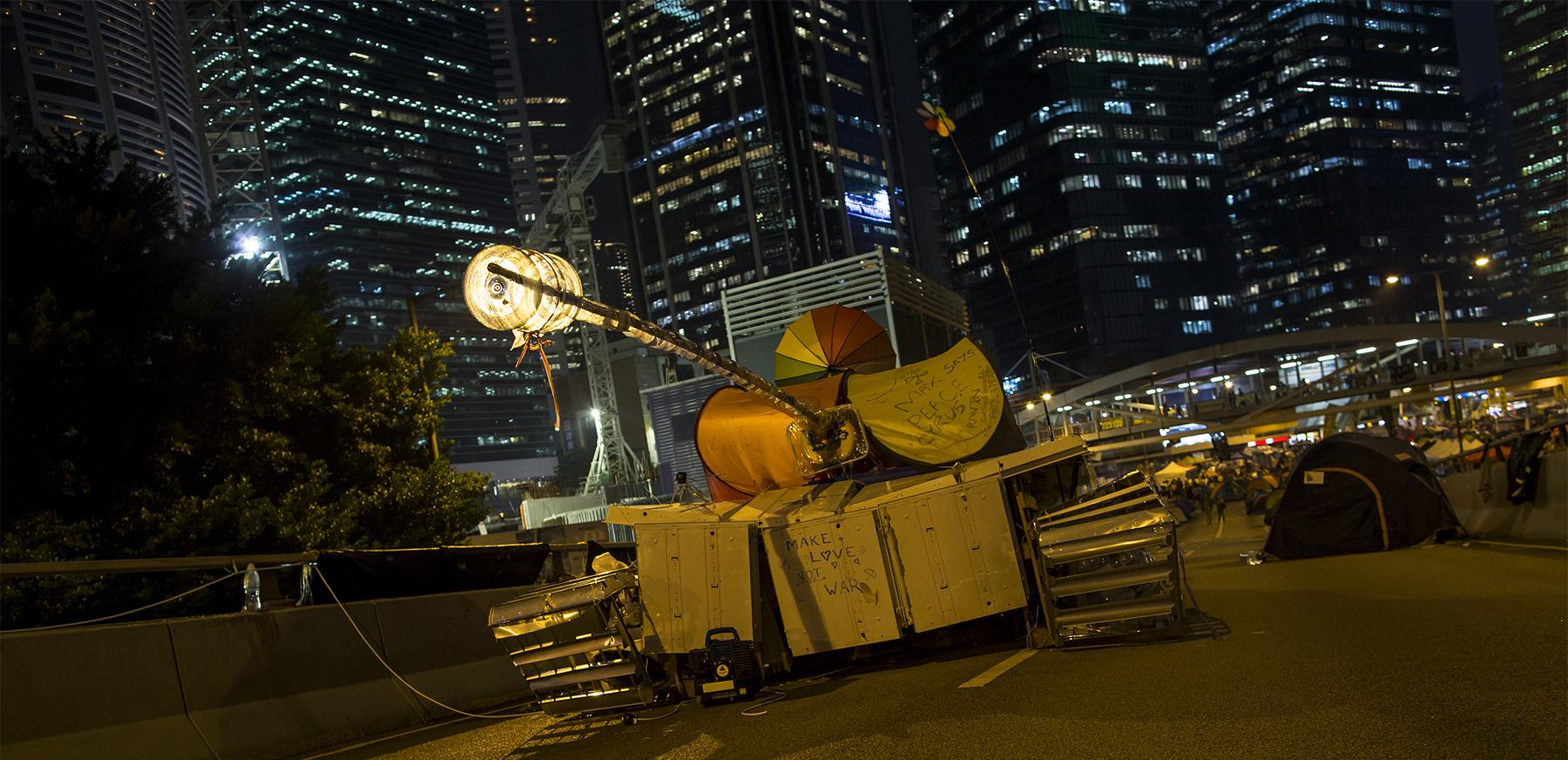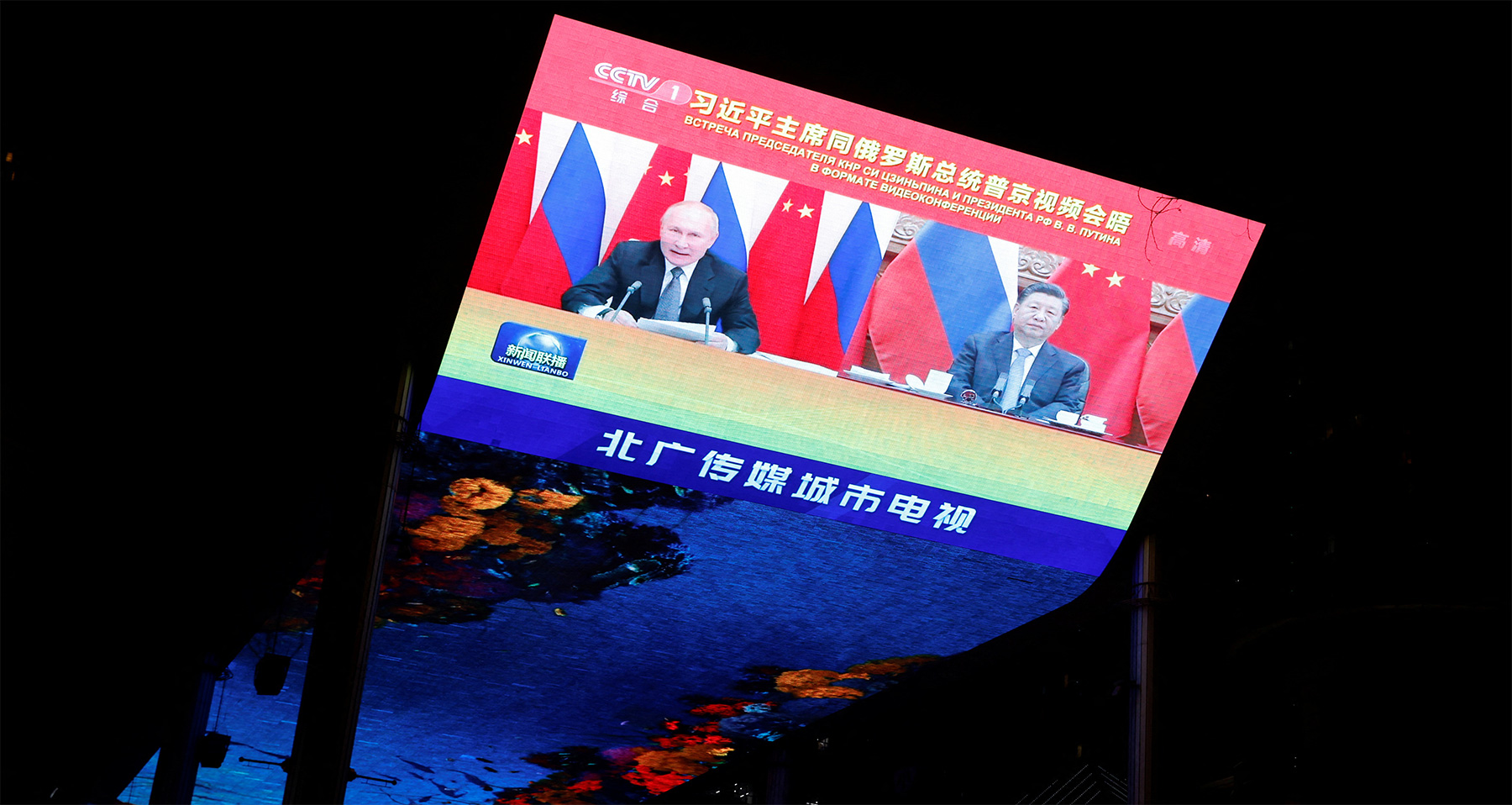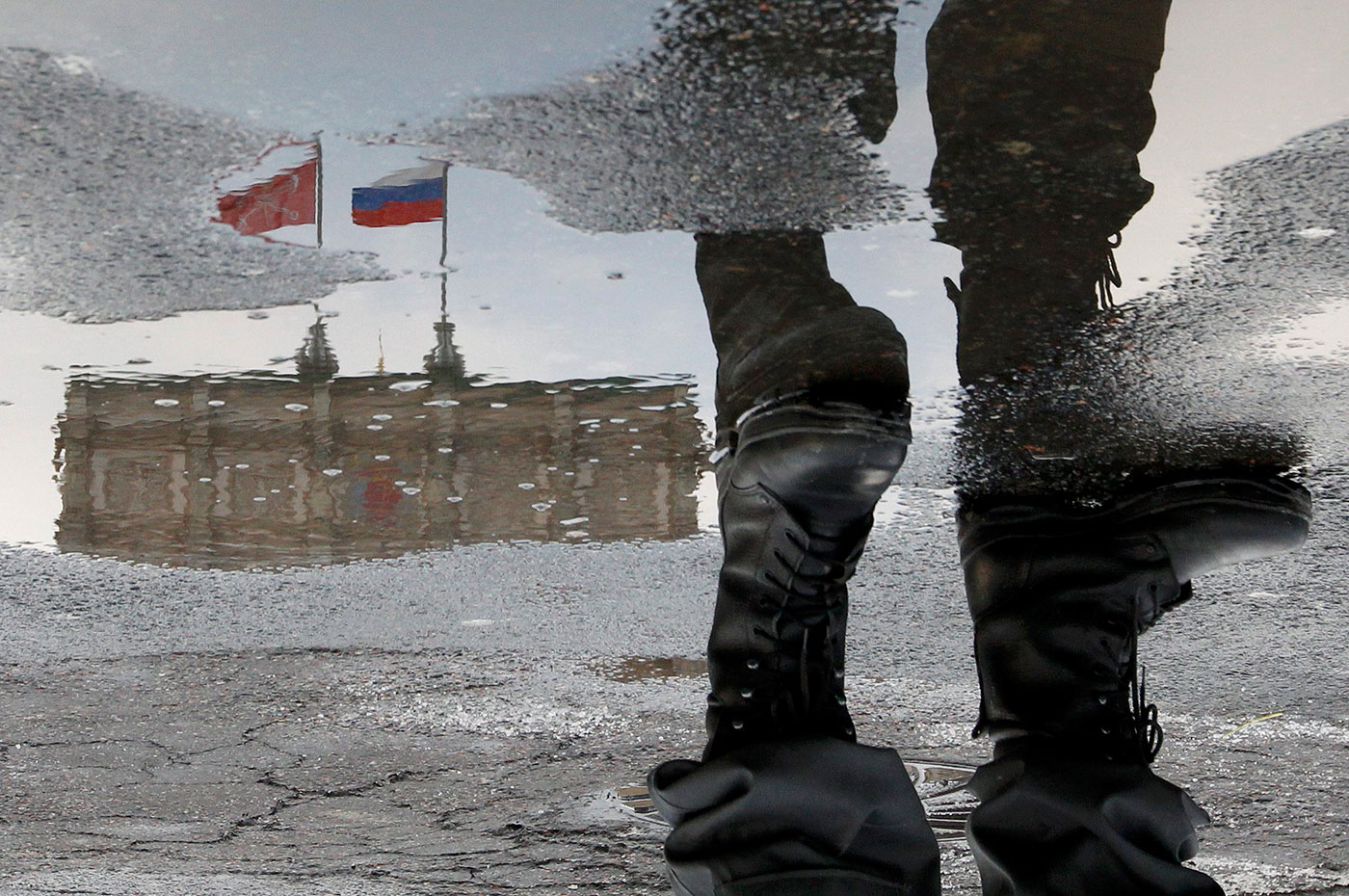On Chinese Democracy
(votes: 8, rating: 4.63) |
(8 votes) |
Senior research fellow at MGIMO Institute for International Studies, Center for Euroasian Studies, RIAC Expert
Western observers are unanimous in their appraisal: “there’s no democracy in China.” However, the problem is that the very concept of “democracy” (a certain “power of the people”) is fluid. It is much like a “healthy lifestyle”—it is easy to assume that you are leading a healthy lifestyle, while your rival is not. How can you know for sure, though?
When the Chinese talk about their own “thousand-year traditions of democracy,” they are not paltering with the truth, but sincerely believe it to be true. They call the political system they now have “democratic,” with China’s Constitution containing a reference to “a socialist state governed by the people’s democratic dictatorship, led by the working class and based on an alliance of workers and peasants.” Who said democracy was anything other than that? And who endowed someone with the right to decide what democracy is or is not?
If we proceed from Sun Yat-sen’s understanding of democracy, we can say that a democratic state was founded in China in 1912, since power was seized by the party, and the party consists of the people and reflects the interests of the people. This is fundamentally different to the situation where power belonged to the Son of Heaven (the Emperor’s official title).
Are Chinese people aware that their understanding of “democracy” is different from Western standards? Of course they are. Are they about the abandon their system in order to conform to Western standards? Of course not. What is more, Chinese politicians have been actively using the term “democracy” in their official rhetoric and stressing that democracy exists in China too. They do this in defiance of the West and its “monopoly on deciding where there is democracy and where it is absent.” China realizes that the West uses this monopoly to exert pressure on foreign policies of its opponents and seeks to demonopolize this function and achieve parity in the struggle for control over the information discourse at the very least.
In recent years, China has been following the adage that “he who controls the discourse controls the world” with increasing vigour. That is, the first side to describe a given phenomenon, with a new coinage emerging, determines global attitudes towards it. There are two nations, one on either side of the Pacific, the two main economies of the world. Both declare they have a constitutional republican system and respect for human rights. Yet, one is considered a model of democracy and an example to be followed, while the other is seen as an archaic authoritarian system built upon censorship and repression. We are, of course, talking about the United States of America and the People’s Republic of China.
As recently as 15–20 years ago, it was generally accepted that the U.S. version of democracy was the model to aspire to, but this is no longer the case. Against the backdrop of the Ukraine crisis and the various reactions thereto around the world, Western journalists are increasingly giving in to the temptation to characterize this period of world history as a struggle between “democracy” (represented by the West, led by the United States, and “correct” non-Western countries such as Japan and Lithuania) and “authoritarianism” (China, Russia and the “enfants terrible of world politics” that joined them). One of the fallouts, therefore, is that there have been new turns to the discussion about whether China’s socio-political system can be called “democracy”.
Western observers are unanimous in their appraisal: “there’s no democracy in China.” However, the problem is that the very concept of “democracy” (a certain “power of the people”) is fluid. It is much like a “healthy lifestyle”—it is easy to assume that you are leading a healthy lifestyle, while your rival is not. How can you know for sure, though?
Even political analysis falls short. For instance, any researcher who was brought up in the Western paradigm of political science will argue that if there are no direct democratic elections and a separation of powers, this is no “democracy” but something entirely different. Neither exists in China, yet this does not stop Chinese scholars from proclaiming—with no hint of irony—that their country is indeed democratic, only in a distinctly Chinese way.
It is not only the definition of “democracy” that is fluid, so too is the genesis of democratic traditions. For example, it is generally accepted that the Western neo-liberal model can be traced back to the democratic practices of Ancient Greece and that the subsequent history of humankind is a single process of encouraging and improving such practices. However, what most people do not know is that democracy, even in Athens, was an expression of the oligarchic elite’s power at best, and this was done with the help of populism and appeals to the legitimacy of the “popular opinion.” A similar situation was the case with the Veche in medieval Veliky Novgorod. At the same time, proto-democratic procedures (for example, the election of chiefs among nomads or the self-government of agricultural communities in Ancient China) existed among all the peoples of the world in one form or another, and it is a mystery why some practices led to “good democracy,” while others led to “bad authoritarianism.”
Thus, when the Chinese talk about their own “thousand-year traditions of democracy,” they are not paltering with the truth, but sincerely believe it to be true. They call the political system they now have “democratic,” with China’s Constitution containing a reference to “a socialist state governed by the people’s democratic dictatorship, led by the working class and based on an alliance of workers and peasants.” Who said democracy was anything other than that? And who endowed someone with the right to decide what democracy is or is not?
It should be noted here that the term “democracy” has long been absent in the Chinese tradition. In fact, the word “minzhu” (民主, “the power of the people” or “the people are the masters”) was brought by Sun Yat-sen from Japan in the early 20th century. This was merely a re-rendering of the Japanese term “mingshu” (民主), which itself came from the Western notion of “power of the people.” The Hanzi and Kanji (which the Japanese originally adopted from China) are identical, but the wording first came from Japanese for a fact—much as the word “gongchanzhui,” 共产主义, meaning communism, as well as other “-zhui”-words (主义), which is something like the English “-ism”—and never appeared in classical Chinese texts.
On the one hand, the term “democracy” is borrowed, and so too is its understanding. On the other hand, the term has no historical base and can be filled with any content. Or, rather, its understanding can be corrected for the sake of political expediency or local conditions. And that is exactly what has happened to “democracy.”
In China, the term appeared on the eve of the Xinhai Revolution and the overthrow the Manchu-led Qing imperial dynasty. For Sun Yat-sen and his cohort, it was important that the “power of the people” (“minzhu”) was directly opposed to the “power of the sovereign” (“junzhu”, 君主). That is, any political system where the head of state is not the sole sovereign is seen as a democracy. Incidentally, Sun Yat-sen used the word “minquan” (民主, “sovereignty of the people”) in addition to “minzhu” (民主) to denote democracy, although most people consider these terms to be identical.

What Is Democracy and How It Can Be Measured?
In any case, if we proceed from Sun Yat-sen’s understanding of democracy, we can say that a democratic state was founded in China in 1912, since power was seized by the party, and the party consists of the people and reflects the interests of the people. This is fundamentally different to the situation where power belonged to the Son of Heaven (the Emperor’s official title).
Of course, China’s political system of the 1910s to the 1940s—that is, before the Communist Party ascended to power—was far from the high standards of neoliberal democracy. If we were to put a label on it, we would say that it was a combination of the power of the oligarchy and generals, multiplied by the partocracy (the ruling Kuomintang party) and the cult of its leader Chiang Kai-shek. But this, of course, was also called “democracy.”
When the Communists came to power, Mao Zedong wanted to show that China would be a democracy—not the “bad” kind of democracy that reigned under Chiang Kai-shek, but a different, “new” kind of democracy. This “new democracy” (新民主), as it was called, was seen as a stopgap on the way to building a socialist society. It was still a single-party system (only it was a different party that was in power), and the position of leader (Mao Zedong) looked almost indistinguishable from that of emperor in the end.
The death of Mao Zedong was followed by a series of reforms that laid the foundation for the modern Chinese political system, where elections do take place, although the Party’s monopoly on power remains very much intact. The Chinese people define this phenomenon as “the people’s democratic dictatorship led by the working class” (a quote from the preamble to the Constitution of the People’s Republic of China). It is essentially a partocratic regime based on the one that once existed in the Soviet Union, only reimagined and improved.
One of the most striking features of China’s political system is the absence of the separation of powers. Officially, the only “state power” is the national people’s congresses—the institution through which the people exercise their power under the Constitution. People’s congresses are a multi-layered pyramid, at the very bottom of which direct and quite democratic elections are indeed held. What is more, the higher people’s congresses are made up of members of the lower ones, meaning that the pyramid works as one big filter. Thus, the people actually play an indirect role in the formation of the highest body of state power – the National People’s Congress (NPC).

China and Russia: Dialog in the Face of External Challenges
It just so happens that most members of the people’s congresses at all levels are communists. While some opposition-minded figures may appear as if out of nowhere at the bottom of the pyramid from time to time, they will not make it past the multi-stage filter, and only proven and reliable people will end up in the NPC. The vast majority of these (although not all) are members of the Communist Party. It is only natural, therefore, that they act within the framework of party discipline and go along with decisions adopted by party congresses in the past.
The workings of this system are quite easy to trace if you look at key personnel decisions. For example, the party leadership for the next five years will be elected this autumn at the 20th National Congress of the Chinese Communist Party. The new convocation of the NPC will convene somewhat later in March, where the President of the People’s Republic of China will be elected (or re-elected). Therefore, it would be logical to assume that it will be the General Secretary of the Central Committee elected (or re-elected) at the autumn Congress.
Other key appointments will be made in a similar fashion. For example, the second-highest person in the party hierarchy will become the head of government. Is that democratic? If you were to ask China’s idea-mongers, they would tell you that it most certainly is. The NPC is formed as a result of multi-stage elections. Theoretically, parties other than the CPC can compete for a parliamentary majority. But the main thing is that the Party represents the interests of the people, meaning that the power of the party is the “power of the people.”
Are Chinese people aware that their understanding of “democracy” is different from Western standards? Of course they are. Are they about the abandon their system in order to conform to Western standards? Of course not. What is more, Chinese politicians have been actively using the term “democracy” in their official rhetoric and stressing that democracy exists in China too. They do this in defiance of the West and its “monopoly on deciding where there is democracy and where it is absent.” China realizes that the West uses this monopoly to exert pressure on foreign policies of its opponents and seeks to demonopolize this function and achieve parity in the struggle for control over the information discourse at the very least.
This is most evident not in the concept of “democracy,” but rather in the concept of “human rights.” From a Western point of view, human rights are first and foremost the right of the individual to do or have something contrary to or regardless of the interests of society or the state. The classic liberal understanding of human rights is the triad of fundamental natural rights put forward by the British political philosopher John Locke, namely, the right to “life, liberty, and property” (the understanding is that the state was created to guarantee these rights, even though they may be contrary to the interests of the state).
For China, the very notion that the interests of the individual and the state may not coincide is inconceivable. The Western understanding of human rights thus not have any foundation. The Chinese concept of “human rights” (also absent in the traditional political and legal system) is also different. Human rights, as the Chinese understand the term (at least those I have had the chance to talk to), means, first of all, the right to food and a decent quality of life, and the state exists to ensure this. This implies that the highest interests of the state and the highest interests of the individual are one and the same.
Thus, as long as there is economic growth in the country and people are fed and clothed, the Chinese version of democracy and human rights will be supported by its people. And the idea that all the countries in the world will, as globalization marches forward, eventually adopt the Western socio-political system is no longer popular or seen as a given.
After the West emerged victorious from the Cold War at the turn of the 1990s and everyone wanted to be like the winners, it was the United States who perhaps had the moral right to say which countries were “democratic” and which were not, and everyone listened. What is more, both China and Russia sincerely wanted to become a part of the “global West.” But when it became clear that they would never occupy a place other than the periphery in this pro-Western global model, and that Western society had become a prisoner of its own agenda (poorly understood and not at all appealing for the “non-West”), people started to voice their criticism of the West’s monopoly on the right to play the role of arbiter.
Nowhere can these voices be heard louder than in Russia and China, and to some it may seem that they are singing this tune in unison. At the same time, the two countries have a number of differences and contradictions, and the Chinese political agenda is even less clear than the Western one. Thus, Russia and China should not be lumped together into some kind of “axis of authoritarianism,” not only because there is no military–political alliance between the two countries (this is just a formality), but also because the terms “democracy” and “authoritarianism” are little more than “labels” that rivals in the current political climate tag each other with in the struggle for control over the information discourse.
(votes: 8, rating: 4.63) |
(8 votes) |





